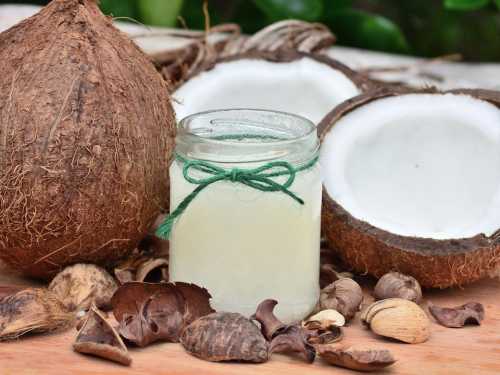
Absolute evil, isn't it? Well, I don't know… The only thing that can be called absolute evil is that our food industry uses cheap palm oil instead of more expensive fats traditionally used in many products, and at the same time hides this from consumers. But if we talk about the impact of palm oil on human health, then everything is not so clear-cut.
When a palm tree ruins everything
If palm oil is substituted for polyunsaturated or monounsaturated vegetable fats (such as olive or sunflower oil), this will undoubtedly significantly reduce the nutritional value of these products and increase the risk of atherosclerosis. The most striking example of such manipulation is mayonnaise or other sauces based on vegetable oil.
The fact is that palm oil, unlike vegetable oil, contains mostly saturated fats (therefore, it is as solid as butter, which also consists of saturated fats). And it does not matter at all that in the first case the saturated fats are of vegetable origin, which for many is synonymous with usefulness, and in the case of butter – of animal origin. Regardless of their origin, all saturated fats in large quantities increase the risk of atherosclerosis and cardiovascular diseases.
When the palm tree is neither hot nor cold
This leads to the second conclusion: if palm oil is used to replace milk fat (for example, to reduce the cost of chocolate, sweets and other confectionery, as well as to reduce the cost or modify the fat content of cheese, sour cream, cottage cheese or milk), this will not affect the risk of atherosclerosis. It will be equally high in the case of real products and in the case of products modified with palm oil.
So, palm oil cannot be blamed for anything here. Yes, we will get less vitamin A, which is characteristic of butter, but we will be enriched with vitamin E and beta-carotene (provitamin A). However, most palm oils used in the food industry are highly refined, and a significant part of these nutrients is lost.
And what about cholesterol? It is not found in palm oil, unlike milk fat, and therefore, products “on palm” should be healthier. But the thing is that cholesterol is not harmful in itself, but only when we eat it together with saturated fats. Shrimp, for example, contain a lot of cholesterol, but not a single supporter of the marine diet has died of a heart attack. And the whole trick is that cholesterol from marine reptiles comes together with omega-3 polyunsaturated fats.
When it's even better than a palm tree
But if palm oil is used to replace the usual and seemingly safe margarine, then in this case, on the contrary, the risk of cardiovascular diseases will decrease. Artificial trans fats, which are the basis of margarine, are much more dangerous saturated fats compared to natural fats in palm oil or dairy products. And don't forget about the most important antioxidant – vitamin E, which is very abundant in palm oil, unlike margarine.
So ordinary and especially industrial margarine, which is used to make potato chips, popcorn, French fries, and other fast food delights, is much more dangerous than palm oil.
This article is for informational purposes only and does not constitute medical advice, diagnosis, or treatment or dietary recommendations. All information contained in the article on the health and nutritional effects of palm oil is provided for general information purposes only and should not be construed as professional medical advice.





